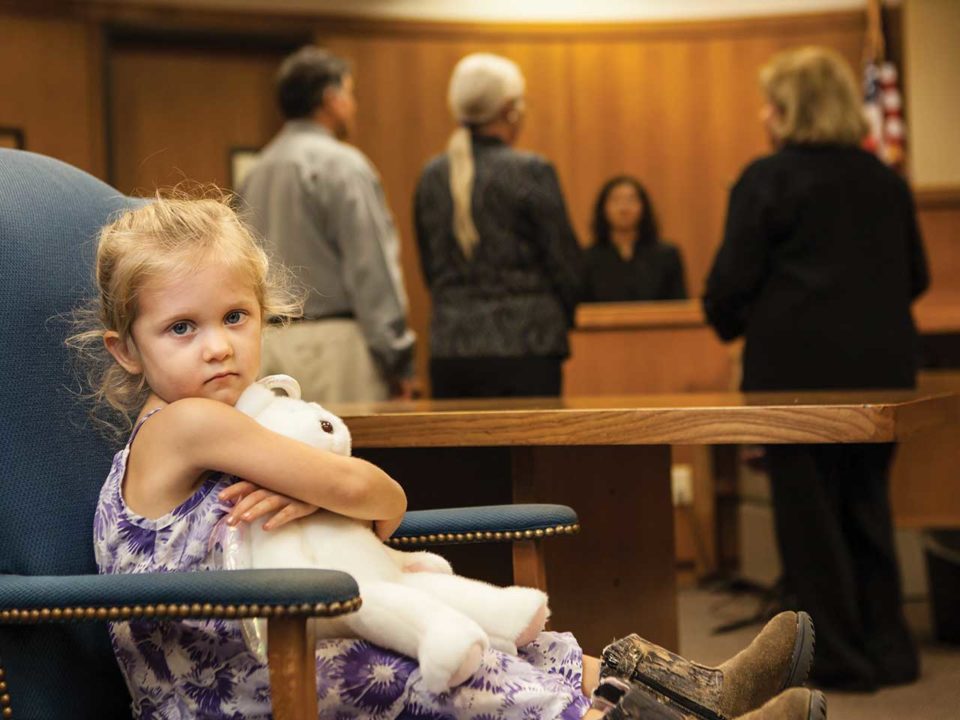n 1977, Seattle juvenile court judge David Soukup had to decide a case about whether or not a child should be removed from her home, based on a report of suspected abuse. Soukup didn’t feel he had enough information to make a fair decision.
The case gave Soukup the idea to organize the first team of Court Appointed Special Advocates (CASA)—volunteers who are trained to speak up in court for the best interests of abused and neglected children. His idea has since grown into a network of 950 programs in 49 states and the District of Columbia, including 18 programs in Colorado.
CASA volunteers are matched with a child or sibling set, ages newborn to 21, based on the volunteers’ preferences. “You’ll meet with [your CASA child] once per week, form a relationship with them, and become a safe and consistent person in their life, at a time when they are undergoing a lot of change,” explains Mallory Hastings, outreach and recruitment coordinator for CASA Jefferson and Gilpin counties, who is also a CASA volunteer.
Every 60 to 90 days, CASA volunteers attend court, update the judge on how the child is doing, and advocate for their needs, for the duration of their court case. “[Talking to the judge] is a lot less intimidating than you would think. The judges really care about these kids,” says Hastings, adding that judges lead the swearing-in ceremony that follows CASA volunteer training.
Hastings reports that children who have a CASA volunteer are less likely to stay in foster care, and more likely to pass all their classes in school. And, she’s seen many volunteers maintain long-term relationships with their CASA children.
“We had a volunteer who actually drove her CASA child to Texas to visit colleges when it was time to start looking at schools,” Hastings remembers. She also told the story of a CASA volunteer who had always wanted to be a grandmother. When her CASA child had a baby of her own, this woman got to be in the delivery room, and now maintains a grandmother relationship with that child.
Though each CASA program’s needs will vary, Hastings reports that Jefferson and Gilpin counties currently have more than 200 CASA volunteers, which serves only 35 percent of their caseload. “We are always looking for more advocates,” Hastings says, noting that volunteers do not need any specific experience. “All we ask is that they are willing and have a passion for kids.”
How Families Can Help »
- Become a CASA volunteer. Visit the CASA Colorado website to select a program in your area, then contact that local program. You’ll need to complete an extensive background check and 35 hours of training, which includes classroom instruction, assignments, court observation, and a swearing-in ceremony.
- Make a financial donation online.
- Help spread the word about CASA. If you are part of an organization that needs a speaker, contact a CASA representative to come speak to your group.
- Advertise the need for CASA volunteers. If you are part of a church or organization that has space to advertise the need for volunteers, contact a CASA representative.





